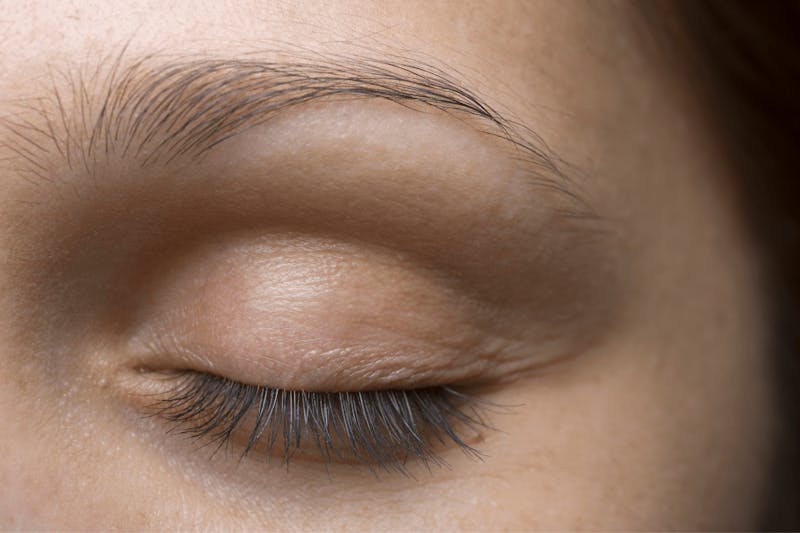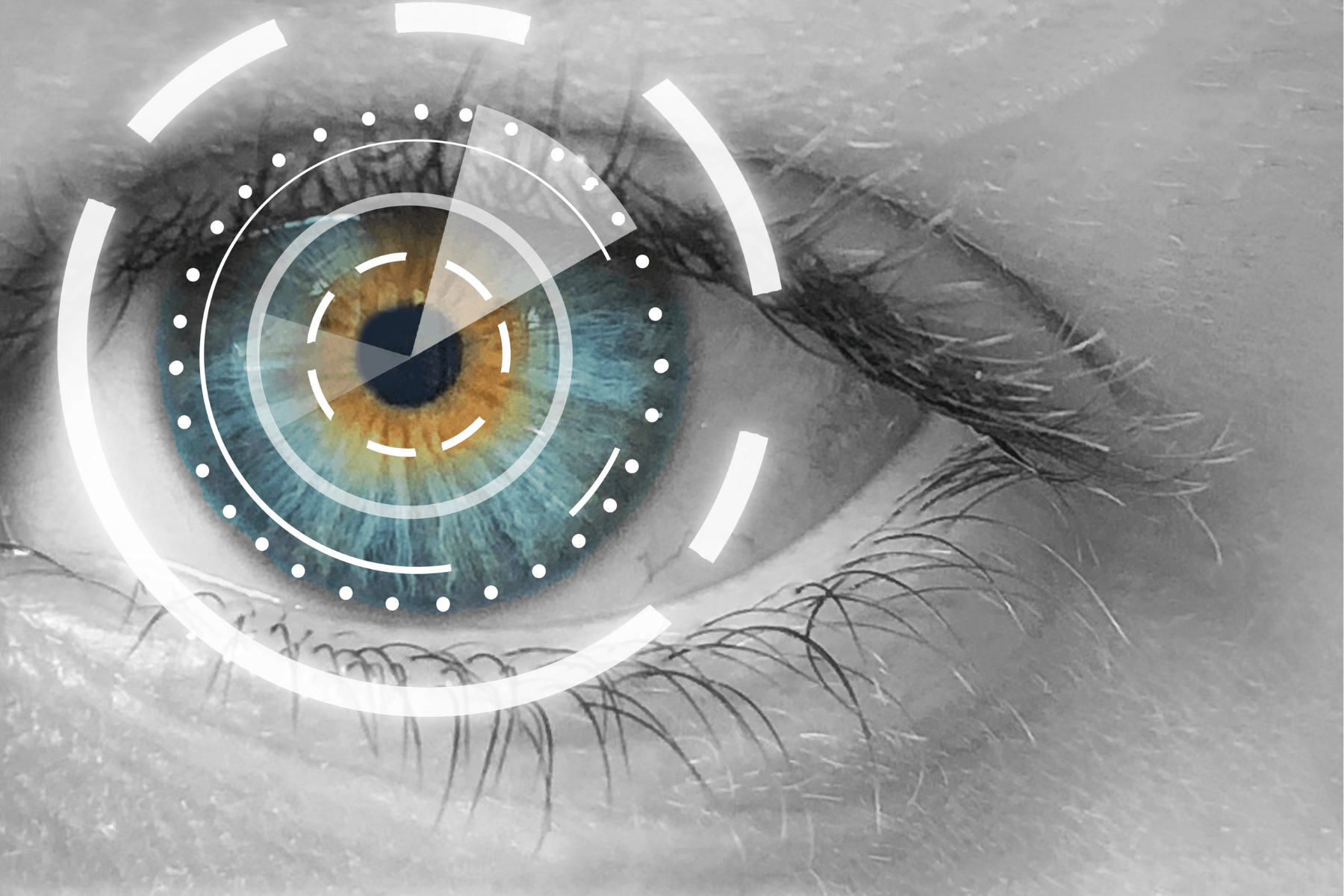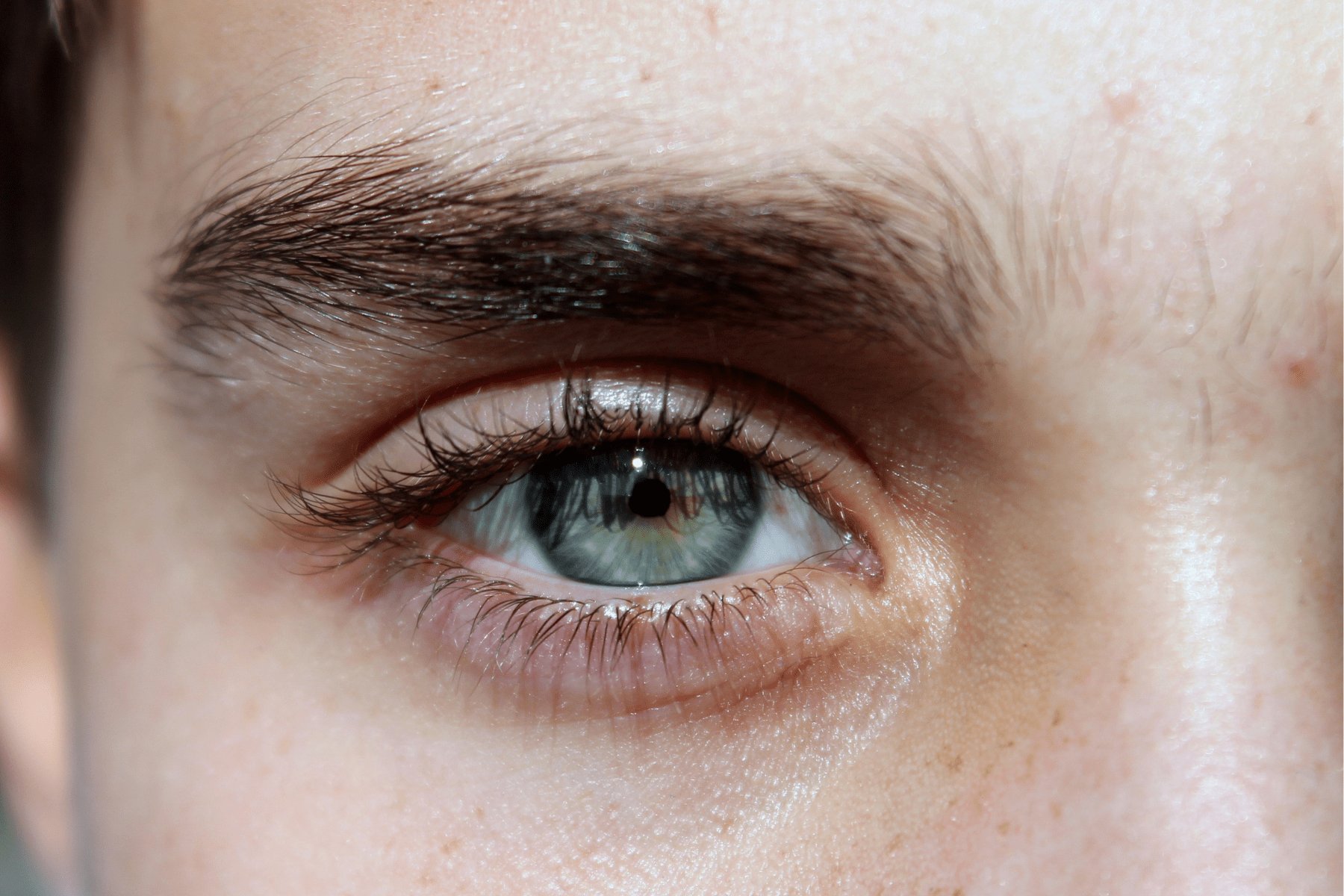
Learn More About Your Eye Twitch:
Different Types of Eyelid Twitches:
Everyone experiences eyelid twitching differently. Most twitches resolve themselves on their own, while other twitches last for hours or even days. In order to determine the best course of treatment, your eye doctor must first determine what type of eyelid twitch you’re experiencing.
There are three different types of eye twitches -- a minor eyelid twitch, a benign essential blepharospasm, or a hemifacial spasm. Your eye doctor will perform an eye exam to diagnose the eye twitch properly, that way you can work together in treating the eye twitch over time.
Minor Eyelid Twitch
A minor eyelid spasm, also known as eyelid myokymia, generally resolves itself on its own. It can occur in the upper or lower eyelid, if not both. Minor eyelid twitches are usually linked to stress, too much caffeine, or lack of sleep -- as well as irritation of the cornea or conjunctiva.
Hemifacial Spasm
Perhaps the most uncommon type of eye twitching, a hemifacial spasm generally involves both eye muscles and facial muscles. It’s usually caused by an artery pressing on a facial nerve (cheek, mouth, neck), which causes the eye to twitch. It only occurs on one side of the face.
Benign Essential Blepharospasm
Benign essential blepharospasm occurs in both eyes and is usually characterized by rapid blinking and abnormal closing of the eyelid -- sometimes for hours. It’s a rare condition that only affects around 2,000 people every year. It usually occurs in adults and gets worse over time.

What Causes Eye Twitching?
Doctors and researchers are still trying to pinpoint the exact causes of eyelid spasms, whether it’s minor or more severe. While they haven’t found any concrete causes, there are a variety of risk factors that seem to play a role in the development and persistence of these twitches.
Here are some of the most prominent risk factors and potential causes of eye twitching:
- High stress levels
- Lack of sleep, fatigue
- Excess amount of caffeine
- Alcohol abuse or tobacco use
- Malnutrition, improper diet
- Dry eyes or allergies
- Certain medications with side effects
- Brain damage, more specifically the thalamus, basal ganglia, or brain stem
- Nervous system disorders, such as Parkinson’s disease, dystonia, or multiple sclerosis
- Abnormal movement of the facial muscles
It’s believed that eye twitching can run in the family, so you might be at a greater risk if your family members often experience eye spasms. It seems to be more common in middle-aged or older women. If twitching persists for hours or days, contact your ophthalmologist immediately.

Treatments & Tips to Reduce or Stop Eye Twitching
Although most cases of eyelid twitching are temporary and resolve on their own, other cases are more severe and require medical attention from your eye doctor. If not treated properly, the eyelid twitches can have a negative impact on your vision and cause several complications.
Your ophthalmologist will try to determine the underlying cause of the eye twitch in order to find the best form of treatment. If it’s likely caused by too much stress, excess caffeine, or lack of sleep, they will recommend making the necessary lifestyle changes to reduce the twitch.
They also might recommend eye drops if they believe it’s caused by dry eyes. In some more severe cases, your doctor might suggest medication, Botulinum toxin injections, or even eye surgery. For example, a myectomy involves removing some of the eyelid muscles and nerves.
Here are some additional tips to help you reduce minor cases of an eye twitch:
- Make sure you’re getting 7-8 hours of quality sleep each night.
- Avoid drinking too much caffeine, ideally under 300mg per day.
- Find ways to better manage the everyday stressors in your life.
- Use sunglasses whenever necessary.
- Make sure you’re eating a healthy, well-balanced diet daily.
- Cut back on the alcohol and tobacco use.
- If you experience dry eyes throughout the day, use eye drops.
- Apply warm compresses over the affected eye to massage the eyelid and reduce inflammation.
You should contact your local ophthalmologist as soon as your eyelid twitch persists for several days or weeks. You should also contact your doctor if it starts to impact your vision, you have difficulty opening your eyelid, or you experience twitching in other parts of your face.

Contact Coastal Eye Surgeons to Learn More!
Eye twitching can be extremely frustrating and annoying, especially when it persists for longer than a few hours. It might seem like the twitching will never stop and even when it does, it’ll likely find its way back. Don’t panic, this is very common and there are treatment options available.
Whether you have persistent eye twitching, want to learn more about the eye twitches you’re experiencing, or haven’t scheduled a regular eye exam in a while and want to ensure your eye health is up to par, you can trust Dr. Omar Shakir and his team at Coastal Eye Surgeons.
We take pride in serving the community with high-quality eyecare services for you and your family. We provide a boutique-style experience and utilize the newest, most advanced technology in helping you preserve your vision for as long as possible. Contact us today to schedule an eye exam with us at Coastal Eye Surgeons!

